A Methuen car accident claim is the legal process through which an injured driver or passenger seeks reimbursement for medical costs, lost wages, property damage, and pain and suffering after a crash. This guide explains how Massachusetts’ modified no-fault system, comparative negligence rules, and statute of limitations affect your claim. It also outlines the key steps to protect your rights from the moment of the collision through settlement or trial.
You will learn what to do immediately after an accident, how Personal Injury Protection (PIP) coverage works, when you can pursue an at-fault driver, what damages you can recover, and how a local attorney can help you maximize compensation. If you’ve been injured in an accident in Methuen or surrounding areas, contact our Massachusetts car accident lawyers today for a free consultation.
Your first priority is safety. Move vehicles to a secure location if possible, turn on hazard lights, and check everyone for injuries. Call 911 for any sign of injury, fire, fuel leaks, or serious property damage. Even if injuries seem minor, get a medical evaluation to create a clear record linking your treatment to the accident.
Once everyone is safe, gather as much information as possible:
When police arrive, provide factual statements and request the officer’s name and report number. If an officer does not respond, file a report with the Methuen Police Department. A complete record of the incident is essential when filing your claim or communicating with insurers.
If you feel unsure about what to do next, reach out for legal guidance. Kiley Law Group, LLC offers free consultations to help you preserve evidence and understand your next steps.
Massachusetts follows a modified no-fault insurance system. This means Personal Injury Protection (PIP) coverage pays for your medical expenses and lost wages up to policy limits, regardless of who caused the crash. PIP helps cover:
To access PIP, you must file a claim with your own insurer and submit medical documentation. Keep all receipts and treatment records to show that your care is connected to the collision.
PIP benefits provide quick financial relief, but do not compensate for pain, suffering, or permanent injuries. If your medical expenses exceed the threshold or your injuries meet the “serious injury” standard, you may pursue an at-fault claim for additional damages.
You may bring a claim against the at-fault driver when your injuries meet Massachusetts’ threshold for serious injury or your medical expenses surpass a set limit. Examples that often qualify include major fractures, long-term disabilities, or traumatic brain injuries.
In these cases, your attorney can file a personal injury claim seeking full compensation beyond what PIP covers. An experienced lawyer evaluates whether your evidence and medical documentation support an at-fault claim and helps you meet legal filing requirements.
Massachusetts applies comparative negligence, meaning your compensation is reduced by the percentage of fault assigned to you. For example, if you are found 20% responsible for an accident and the total damages are $100,000, you can recover $80,000.
Building strong evidence to minimize your share of fault is critical. Photos, witness statements, and expert reconstruction can help show how the other driver’s actions caused the crash. Attorneys use this evidence to challenge insurer narratives and maximize recovery.
In Massachusetts, you generally have three years from the date of the accident to file a personal injury claim. Missing this deadline can prevent you from pursuing compensation. Certain exceptions may apply in special cases, such as wrongful death claims, but it’s always best to act promptly.
Consulting an attorney early helps ensure evidence is preserved and deadlines are met.
Car accident victims in Methuen can seek both economic and non-economic damages.
These include medical bills, rehabilitation, lost wages, and property repair or replacement costs. Proof often includes invoices, employer records, and repair estimates. For long-term care or reduced earning capacity, experts may project future costs to ensure full compensation.
| Damage Type | Common Proof | Typical Payment Source |
| Medical bills | Provider invoices, medical records | PIP, at-fault settlement or verdict |
| Lost wages | Employer records, tax returns | At-fault settlement or verdict |
| Property damage | Repair estimates, photos | At-fault driver’s property coverage |
These compensate for pain, emotional distress, and loss of quality of life. Attorneys use evidence from medical professionals, family, and daily life journals to show how injuries affect your wellbeing. The value often depends on injury severity, permanence, and recovery outlook.
When a crash results in death, family members can pursue damages for funeral costs, loss of income, and loss of companionship. Eligible plaintiffs usually include spouses, children, or dependents. Given the complexity of these claims, early legal guidance is crucial.
The type and severity of your injuries play a major role in determining claim value. Common injuries include:
| Injury Type | Typical Treatment and Impact | Legal Considerations |
| Whiplash and soft tissue | Physical therapy, chiropractic care | Requires consistent medical documentation to prove ongoing pain |
| Traumatic brain injury (TBI) | Neurological evaluation, rehab therapy | Expert testimony often needed to prove cognitive or emotional impact |
| Spinal cord injury | Surgery, long-term care, mobility aids | Requires life-care plans and vocational assessments |
| Fractures | Casting, possible surgery, rehabilitation | Imaging and surgical reports document severity and limitations |
Each condition demands thorough medical evidence to connect the injury to the accident and calculate both short-term and long-term damages.
Filing a claim follows a predictable sequence that helps ensure accuracy and timely results.
1. Initial Consultation
Contact a qualified car accident lawyer soon after the crash. Bring your police report, photos, medical records, and insurance information. During this meeting, the attorney will assess fault, injury severity, and potential case value.
2. Investigation
Your attorney collects evidence such as witness statements, medical records, and any available surveillance footage. They may work with accident reconstruction experts or medical specialists to strengthen your claim.
3. Negotiation
The attorney prepares a demand package summarizing your injuries, medical expenses, and losses. Insurers typically respond with a lower offer, which your lawyer will negotiate to reach a fair settlement.
4. Litigation (if necessary)
If the insurer refuses to settle or the offer is inadequate, your attorney may file a lawsuit before the statute of limitations expires. Litigation includes discovery, depositions, and potentially a trial. Although it takes longer, it may result in a higher recovery.
| Phase | Key Tasks | Typical Duration |
| Initial consultation | Review facts and insurance details | 1–2 weeks |
| Investigation | Gather records and expert reports | 1–3 months |
| Negotiation | Exchange offers and demands | 2–6 months |
| Litigation | File suit, discovery, trial prep | 6–18 months |
What if I couldn’t gather evidence at the scene?
Write down everything you remember as soon as possible, including location, time, and nearby witnesses. An attorney can help obtain the police report, surveillance footage, and other records.
How do witnesses affect my claim?
Witness statements help confirm fault and clarify disputed details. Collect names and contact information whenever possible so your attorney can follow up for testimony.
What are common mistakes to avoid?
Failing to seek medical attention, missing deadlines, or giving recorded statements to insurers without legal advice can hurt your case. Avoid accepting an early settlement without a full evaluation of your damages.
How does insurance coverage work in a no-fault state?
Your own insurance covers medical bills and partial lost wages under PIP, regardless of fault. If your injuries are serious or expenses exceed thresholds, you can pursue a claim against the at-fault driver.
Why is medical documentation so important?
Accurate medical records prove that your injuries resulted from the accident and show the extent of treatment needed. Keep copies of all bills, prescriptions, and progress notes to strengthen your claim.
Can you change lawyers during your claim?
Yes. If you are not satisfied with your current representation, you can switch attorneys. The new lawyer will coordinate with your previous one to transfer files and maintain case continuity.
Kiley Law Group, LLC is a family-owned personal injury firm serving Massachusetts and New Hampshire. The team focuses on car accident cases and provides personalized representation for clients in Methuen and surrounding communities.
The firm operates on a contingency fee basis, meaning you pay no attorney fees unless they recover compensation for you. This arrangement allows injured clients to pursue claims without upfront costs.
Kiley Law Group tailors strategies to each case by assessing injuries, liability, and client goals, then building evidence and negotiating aggressively with insurers. For those unable to travel, home or office visits are available by appointment.
If you were injured in a Methuen car accident, take the next step toward protecting your rights. Prompt action helps preserve evidence, meet filing deadlines, and maximize your potential recovery. Contact Kiley Law Group today.

